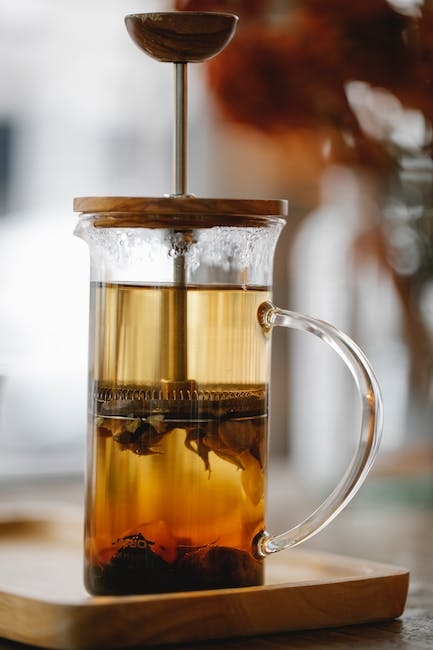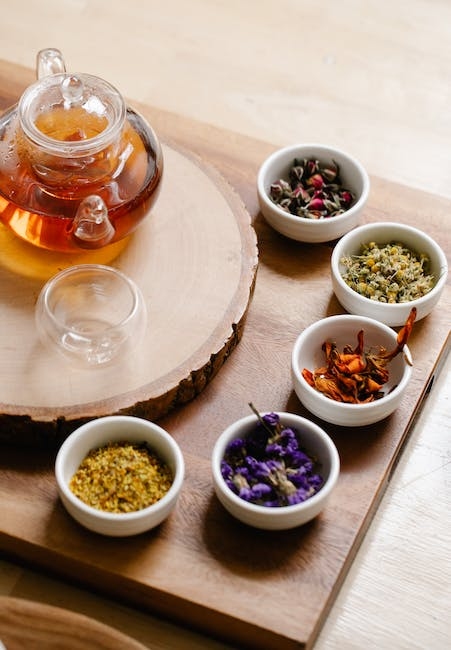The Importance of Water for Optimal Health
Water is one of the most essential elements for human survival. Our bodies are made up of around 60% water, and it plays a crucial role in numerous bodily processes. From regulating body temperature and transporting nutrients to removing waste products, water is involved in every aspect of our bodies’ functioning.
Dehydration: A Serious Health Hazard
Dehydration occurs when the body loses more water than it takes in, and it can lead to numerous health problems. Headaches, fatigue, constipation, and kidney stones are just a few of the many issues that can arise from dehydration. In severe cases, it can even be life-threatening.
Water for Weight Loss
In addition to its many health benefits, drinking enough water can also aid in weight loss. Studies have shown that drinking water can help reduce appetite and boost metabolism, making it an excellent tool for those looking to shed some extra pounds.
How Much Water Should You Drink?
The recommended daily intake of water varies depending on factors such as age, gender, and physical activity level. However, as a general rule, adults should aim to drink 8-10 cups of water per day to maintain optimal health.
Herbal Teas and Hydration
While herbal teas can provide some hydration, they should not be relied upon as a substitute for water. Many herbal teas contain caffeine and other compounds that can have diuretic effects, leading to dehydration. It’s best to stick to plain water as your primary source of hydration.
Conclusion
Water is one of the most essential elements for optimal health, and it’s crucial to make sure you’re getting enough of it. From regulating bodily processes to aiding in weight loss, the benefits of drinking enough water are numerous. So, make sure to drink up and stay hydrated!
Different Types of Herbal Tea and Their Health Benefits
If you’re looking for a natural way to boost your health and wellbeing, look no further than herbal tea. These teas are made from a variety of herbs, spices, and other natural ingredients, each with their unique health benefits. Let’s take a closer look at some of the most popular types of herbal tea and what they can do for your body.
1. Chamomile Tea
Chamomile tea is known for its calming effects on the body and mind, making it a popular choice for relaxation and reducing anxiety and stress levels. It has been shown to promote sleep and may even help to reduce inflammation and pain in the body.
2. Peppermint Tea
Peppermint tea is great for digestion, as it helps to soothe the stomach and relieve symptoms like bloating, gas, and nausea. It can also be useful in relieving headaches and improving mental clarity.
3. Ginger Tea
Ginger tea is another great option for digestion, as it stimulates the digestive system and can help to alleviate symptoms of indigestion and constipation. It also has anti-inflammatory properties and may help to reduce muscle pain and soreness.
4. Green Tea
Green tea is an excellent source of antioxidants, which are known to boost immunity and protect the body against diseases and infections. It may also help to improve brain function and promote fat loss.
5. Echinacea Tea

Echinacea tea is great for immunity, as it contains compounds that can help to fight off colds and flu. It may also help to reduce inflammation in the body and improve skin health.
6. Hibiscus Tea and Rooibos Tea
Some herbal teas like hibiscus tea and rooibos tea are known for their anti-inflammatory properties, which can help to reduce inflammation in the body and promote overall health and wellbeing. Hibiscus tea may also help to lower blood pressure, while rooibos tea may improve bone health.
7. Hydration
Drinking herbal tea can also be a great way to stay hydrated, as it can be a more flavorful and enjoyable alternative to plain water. Plus, many herbal teas are caffeine-free, making them a great option for those who want to reduce their caffeine intake.
Conclusion
Herbal tea is a natural and delicious way to support your health and wellbeing. Whether you’re looking to reduce stress, improve digestion, boost immunity, or simply stay hydrated, there’s a herbal tea out there for you. So why not try one of these amazing teas today and see how it can benefit your body and mind?
The Dangers of Overhydration: How Drinking Too Much Water Can Harm Your Body
Water is essential for our bodies to function properly. It helps regulate body temperature, transport nutrients, and flush out toxins. However, as with anything, too much of a good thing can be harmful. In this blog post, we will explore the dangers of overhydration, also known as water intoxication, and why drinking herbal tea may be a better alternative.
What is Overhydration?
Overhydration occurs when the amount of water consumed exceeds the body’s ability to excrete it. This leads to an imbalance of electrolytes in the body, which are essential for nerve and muscle function. Symptoms of overhydration include headache, nausea, vomiting, confusion, seizures, and in severe cases, even coma and death.
Endurance athletes are particularly susceptible to overhydration as they drink large amounts of water during prolonged exercise without replacing lost electrolytes. It’s important to note that overhydration is rare in healthy individuals who consume a balanced diet and drink water in moderation.
The Risks of Mineral Imbalances
In addition to overhydration, drinking too much water can also lead to mineral imbalances in the body. Excessive water intake can dilute the concentration of minerals, such as sodium and potassium, leading to low electrolyte levels. This can cause muscle cramps, weakness, fatigue, and even heart arrhythmias in severe cases.
However, it’s important to note that mineral imbalances due to water intake are rare and usually occur in individuals who drink excessive amounts of water for prolonged periods.
The Benefits of Herbal Tea
While water is essential for our bodies, it’s not the only source of hydration. Herbal tea can offer some advantages over water as it contains additional nutrients and antioxidants that can benefit the body. For example, green tea contains catechins, which have been shown to reduce inflammation and improve heart health.
Herbal teas also come in a variety of flavors, making it easier to stay hydrated without getting bored. Some popular options include chamomile, peppermint, and ginger tea.
The Bottom Line
Drinking water is essential for maintaining good health, but it’s important to do so in moderation. Overhydration and mineral imbalances are rare, but they can be harmful to your health. To stay hydrated, consider incorporating herbal tea into your diet and drinking water in moderation.
Remember, everything in moderation is key to maintaining a healthy lifestyle. So, drink up, but do so wisely!
The Risks of Herbal Tea: What You Need to Know
Have you ever sipped on a warm cup of herbal tea, feeling like you’re doing something good for your health? While herbal teas can offer a range of benefits, including relaxation and hydration, there are also some potential risks to be aware of.
Here are some key things to keep in mind before you brew your next cup of herbal tea:
1. Herbal teas can interact with medications:
While we often think of herbal teas as harmless, they can actually interact with medications, making them less effective or causing negative side effects. For example, if you’re taking blood-thinning medications, chamomile tea can increase their effects and cause excessive bleeding. It’s essential to check with your doctor or pharmacist about any potential interactions before consuming herbal tea.
2. Some herbs can cause allergic reactions:
Many herbs used in herbal teas can cause allergic reactions, ranging from mild skin rashes to severe anaphylaxis. Common allergens include chamomile, echinacea, and ginger. If you have a history of allergies, it’s crucial to be cautious when trying new herbal teas and to seek medical attention if you experience any symptoms of an allergic reaction.
3. Herbal teas can contain harmful substances:
Herbal teas can also contain harmful substances, such as heavy metals and pesticides, if they are not grown and processed properly. To reduce your risk of exposure, look for high-quality teas that have been tested for contaminants. It’s also a good idea to buy from reputable sources that prioritize sustainability and ethical farming practices.
4. Pregnant and breastfeeding women should be cautious:
If you’re pregnant or breastfeeding, it’s essential to be cautious when consuming herbal teas, as some herbs can affect fetal development or milk production. For example, sage tea is known to reduce milk supply in breastfeeding women, while some herbs can cause uterine contractions in pregnant women. Be sure to consult with your healthcare provider before consuming any herbal teas during pregnancy or while breastfeeding.
5. Certain health conditions may require caution:
Finally, if you have certain health conditions, such as liver or kidney disease, it’s essential to avoid certain herbal teas as they can exacerbate your condition. For example, if you have liver disease, you should avoid teas that contain comfrey, which can be toxic to the liver. If you’re unsure about which teas are safe for your condition, be sure to consult with your healthcare provider.
In conclusion, while herbal teas can be a soothing and healthful addition to your routine, it’s essential to be aware of the potential risks. By understanding these risks and taking steps to mitigate them, you can enjoy the benefits of herbal tea while keeping yourself safe and healthy.


Leave a Reply